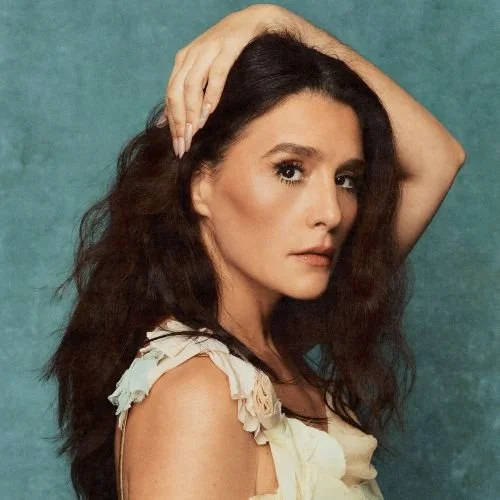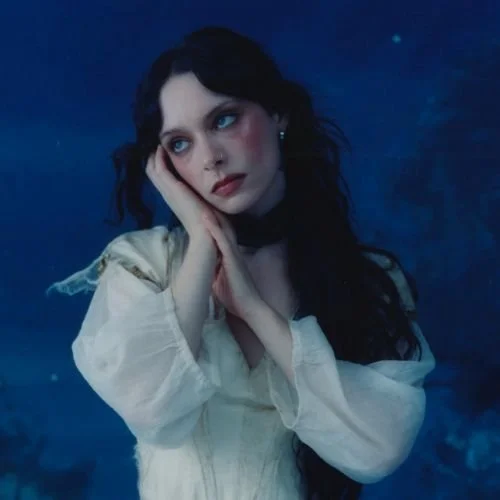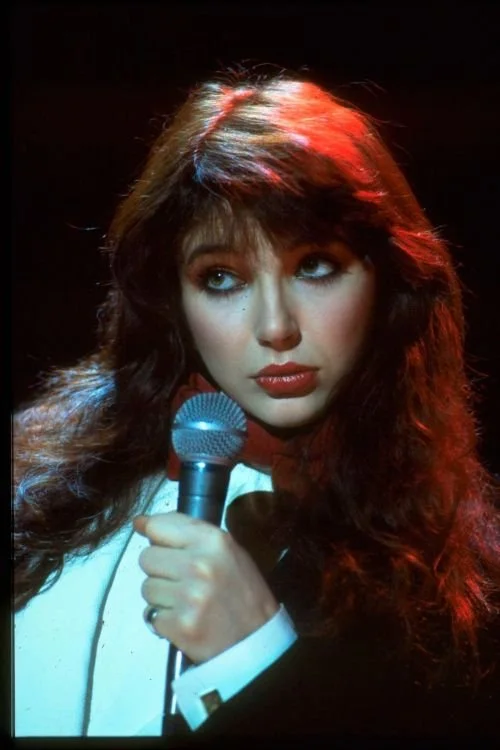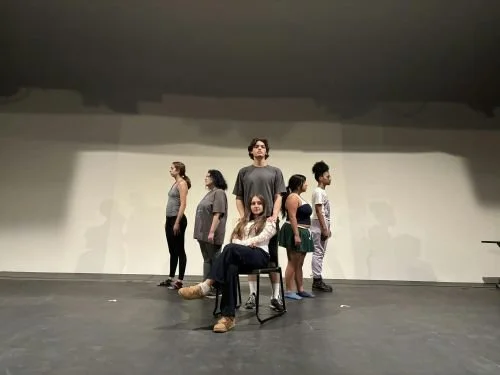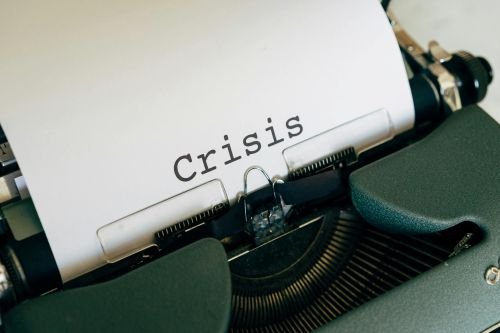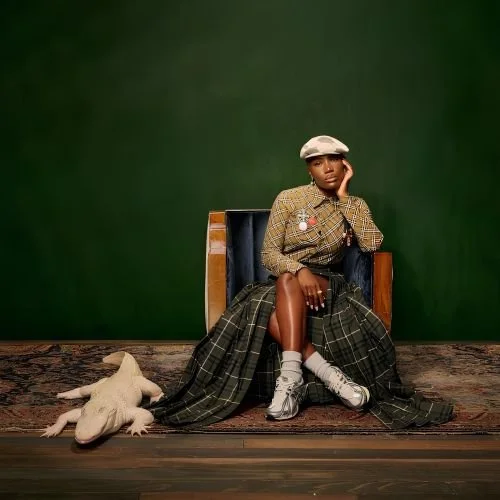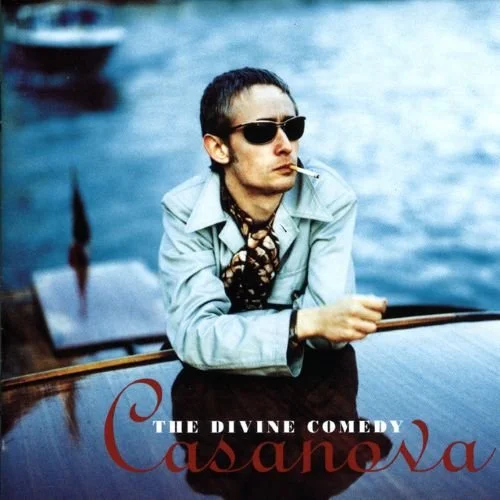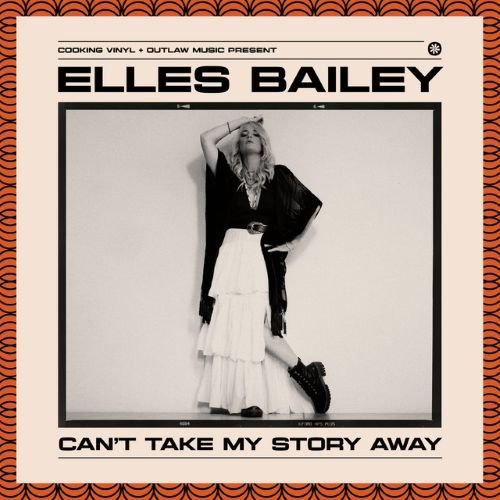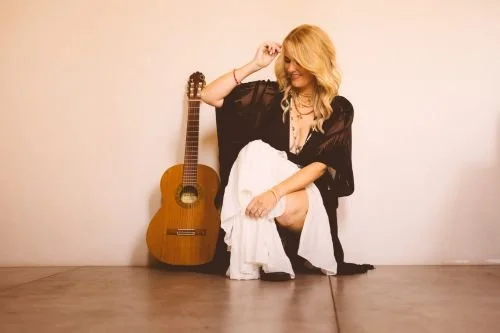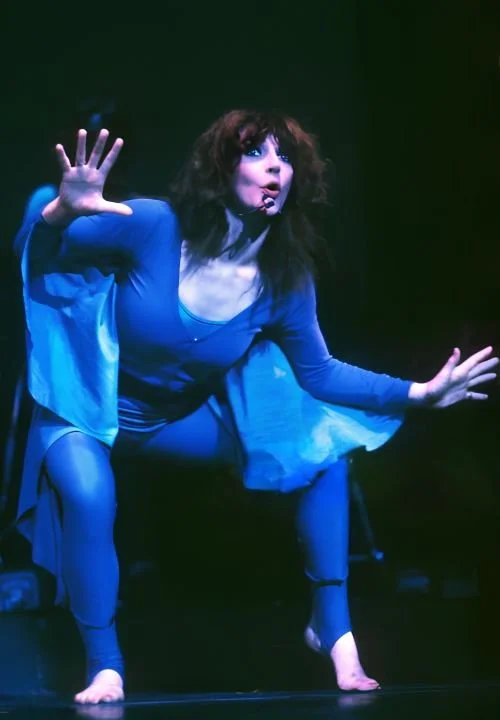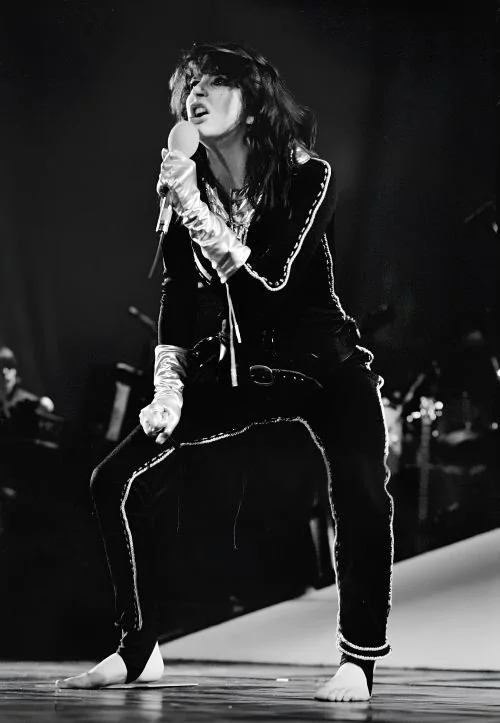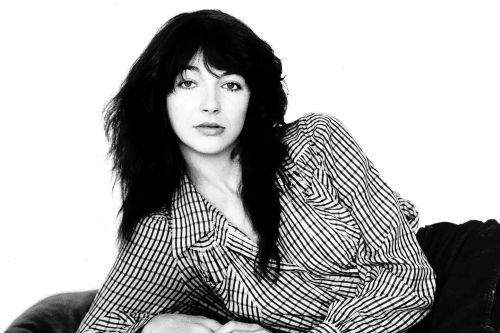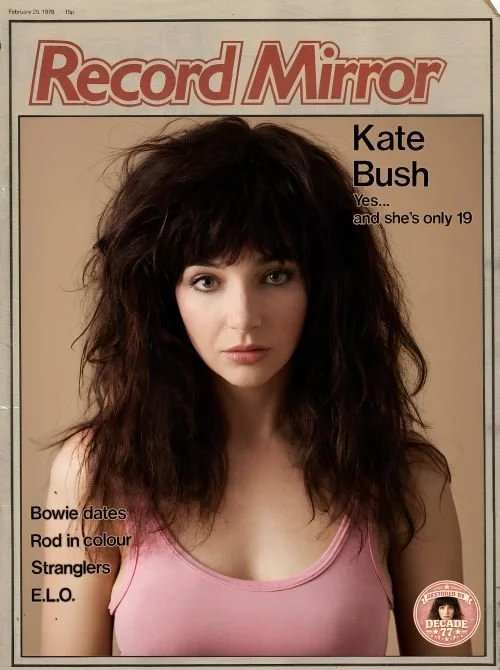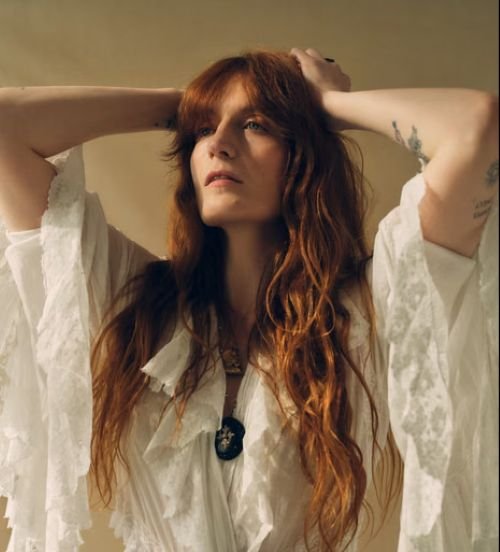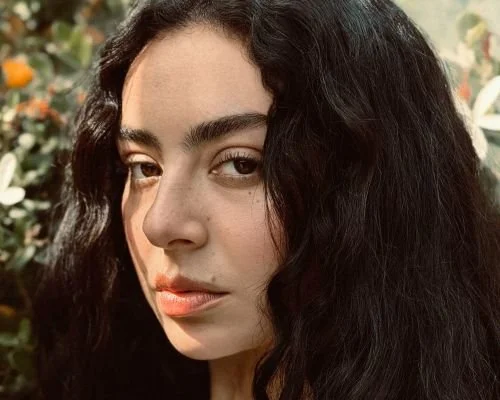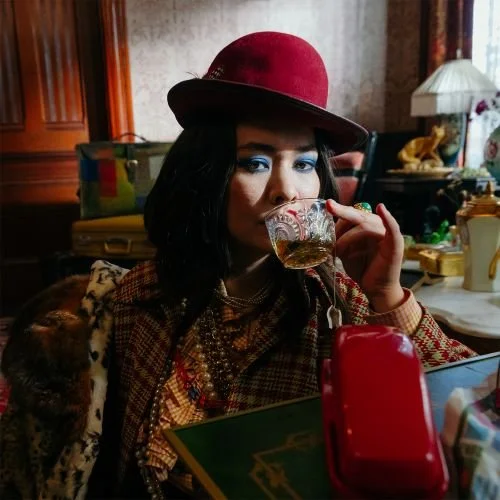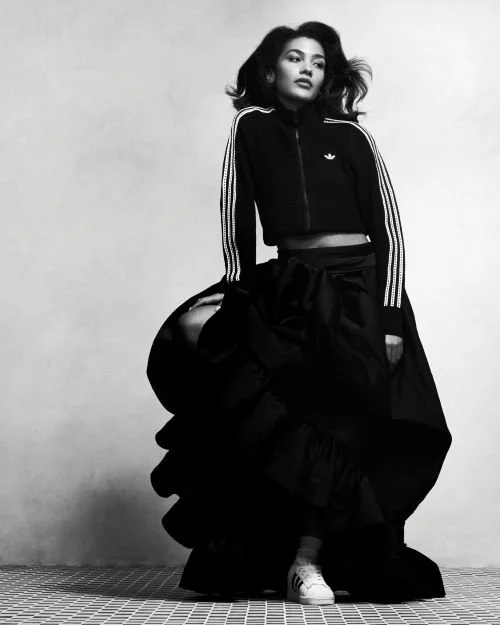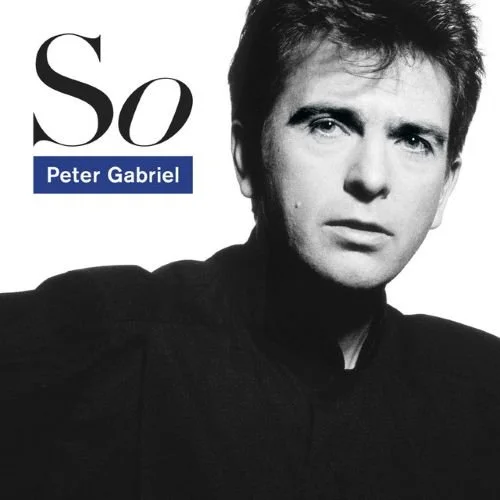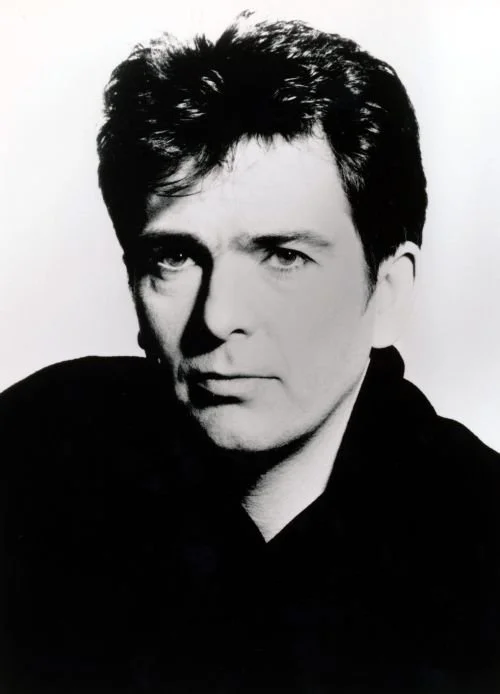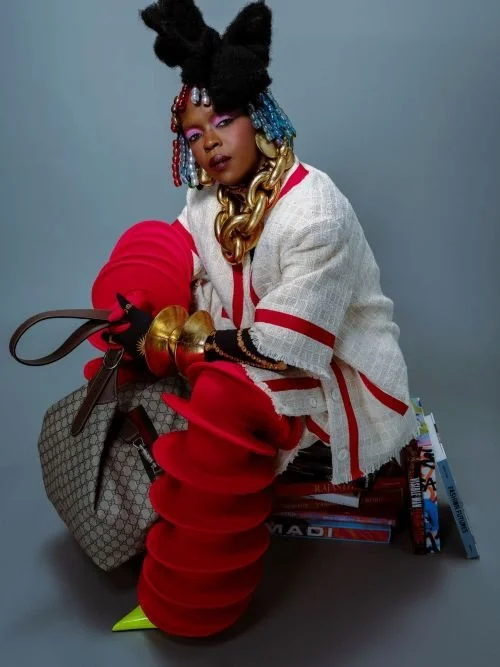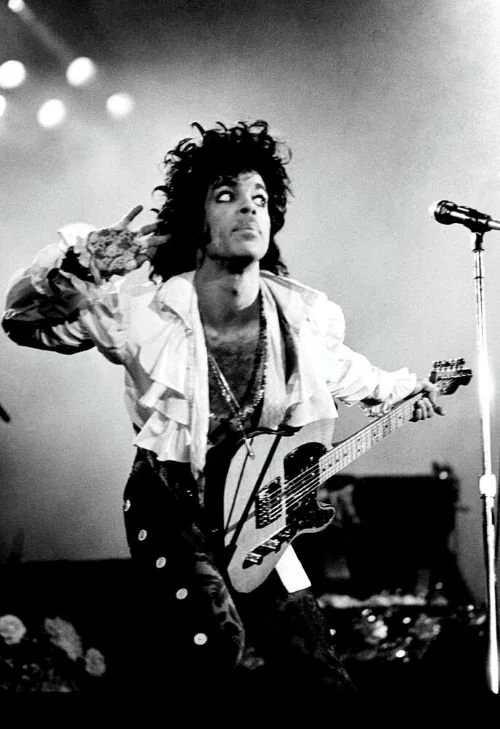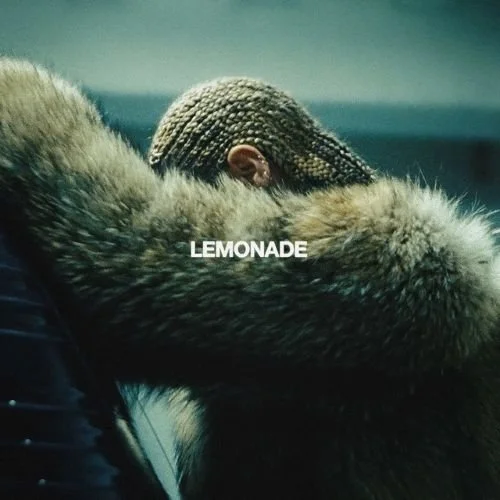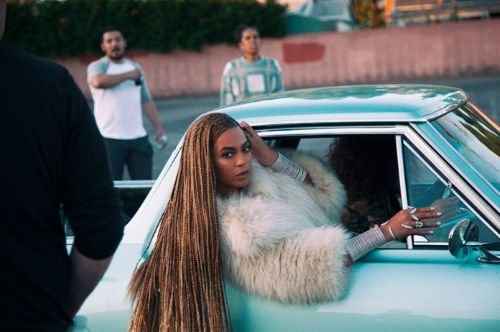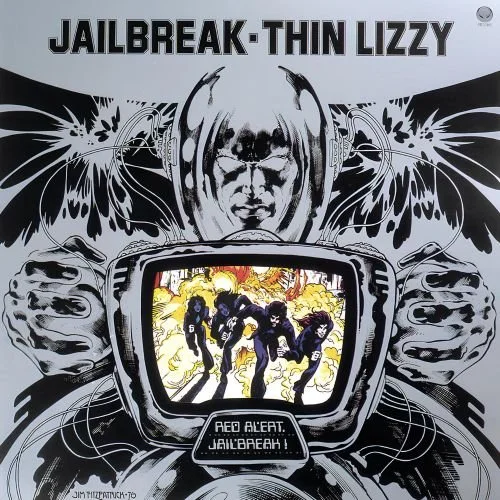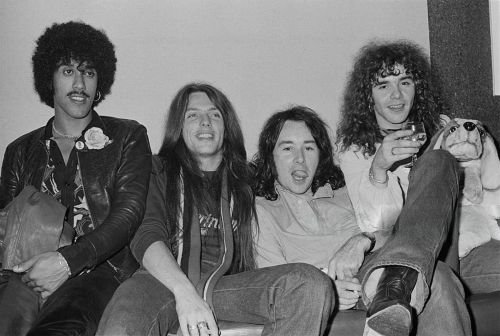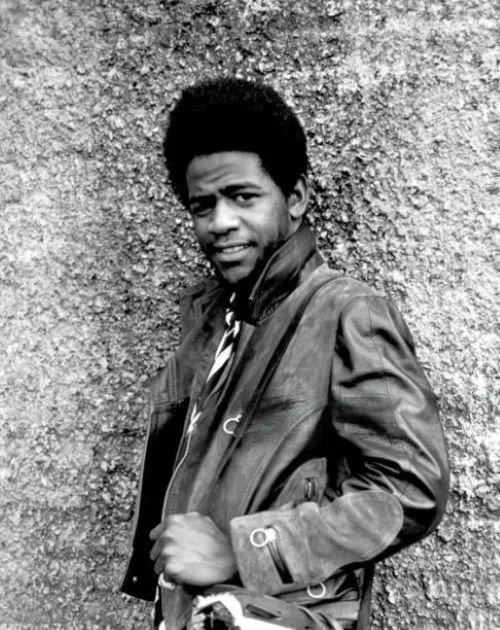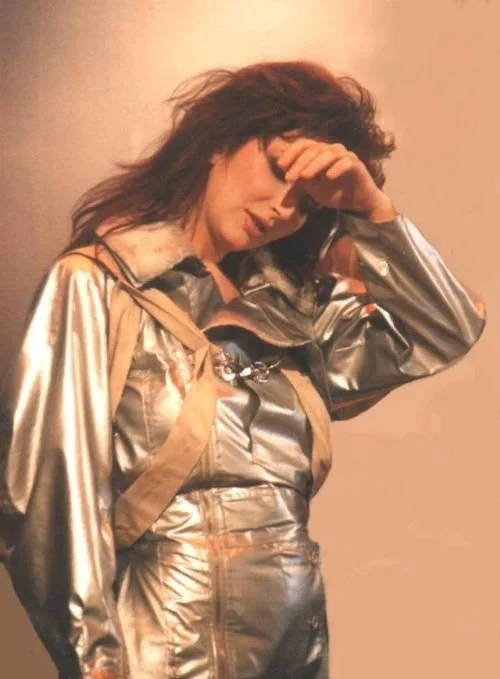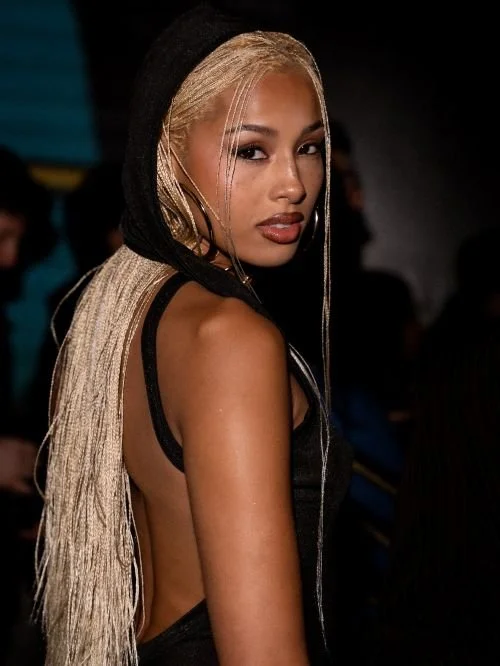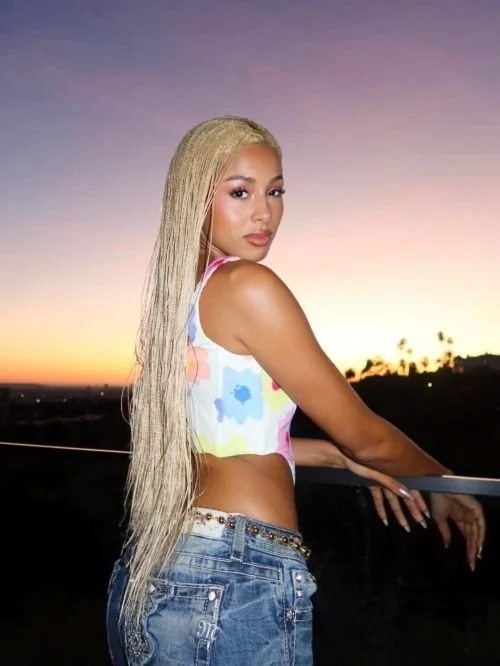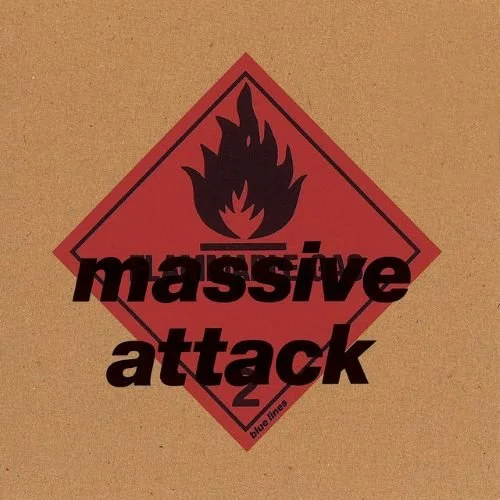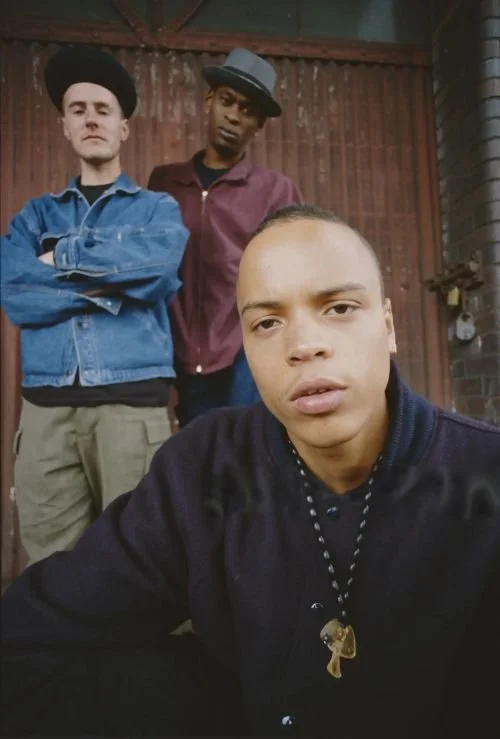FEATURE:
One for the Record Collection!
IN THIS PHOTO: Jessie Ware releases Superbloom on 10th April
Essential April Releases
__________
NEXT month is a packed one…
IN THIS PHOTO: Holly Humberstone’s new album, Cruel World, is out on 10th April
for great new albums. I am starting out with the best of 3rd April. There are two albums that I want to get to. Arlo Parks’s Ambiguous Desire is one I would recommend that you pre-order. Parks is one of our absolute best songwriters. The new album sounds like it could shape up to be her strongest. It is one that you will want to get:
“Twice Grammy-nominated, Mercury Prize and BRIT Award-winning artist Arlo Parks releases her new album, Ambiguous Desire, via Transgressive Records.
Ambiguous Desire is Parks at her most confident and experimental, supplanting live band sessions for modular synths, ableton plugins and samplers that channel the frenetic, vibrant spaces she was immersed in, all while spotlighting the acclaimed poetry and lyricism she’s beloved for.
Reflecting on the making of the record, Parks shares, "I danced more than ever as I made this record, I made more friends than ever too, found myself in the weird underbelly of New York juke nights, unleashed, laughed and laughed and laughed. This record has desire at its centre. Desire is a life force, it’s a wanting, a yearning, a momentum - we are all alive because there is something or someone we want - desire is an engine. But it is also mysterious, tangled, random, enlightening and HUMAN."
Parks crafted the album with producer Baird (Brockhampton, Kevin Abstract). Their process unfolded between NYC’s vibrant, community-rooted nightlife and long, introspective days spent in Baird’s downtown loft. The result is Parks’ most vulnerable, self-affirming, and euphoric work to date”.
Before moving to 10th April, I will highlight Thundercat and his album, Distracted. If you do not know about this amazing American artist, I would urge you to check out his music. You can pre-order Distracted here. I think this will be among the finest albums of this year. Thundercat’s previous work has won huge critical praise. I feel Distracted will get a lot of four and five-star reviews:
“Six years to the date of his last LP, Thundercat releases his fifth studio album, Distracted, via Brainfeeder. The new album features contributions from A$AP Rocky, WILLOW, Tame Impala, Channel Tres, Lil Yachty and a previously unreleased collaboration with the dearly departed Mac Miller. Distracted was primarily created in close collaboration with a new creative partner for Thundercat - the superproducer Greg Kurstin, known for his work with some of the biggest names in pop like Adele, Paul McCartney, Sia, Beyoncé, Beck and more - with additional production turns on the record from Flying Lotus, Kenny Beats (Kenneth Blume), and The Lemon Twigs.
What Thundercat ultimately wants listeners to take from Distracted is disarmingly simple: “Just enjoy it and have fun and just know that the struggle is real and changes shape, but just to keep pushing forward.” In an era that demands constant commentary, Thundercat offers something quieter and, in its own way, more radical. He gives permission to be confused. To be tired. To be, well, distracted — and still make something beautiful out of the noise”.
There are a few albums from 10th April I want to recommend to people. Cruel World is the second studio album from Holly Humberstone. You can pre-order it here. Her amazing debut, Paint My Bedroom Black, was released in 2023. All signs point to Cruel World being a truly phenomenal album. If you are a fan already or not, this is an album that I think you need to add to your collection:
“Holly Humberstone returns with her highly anticipated second album, Cruel World. One of the defining voices of her generation, Holly delivers a record that lives in the tension between pain and pleasure, where chaos and acceptance sit side by side.
Renowned for her forensic songwriting — earning an Ivor Novello nomination for her debut EP and winning the BRIT Rising Star in 2022 — Holly has evolved into a global force whose lucid, emotionally piercing storytelling resonates far beyond her own walls.
On Cruel World, she escapes into a dark fairytale of her own making, where childhood relics, monsters and memory collide, resulting in her most immersive, introspective and compelling body of work to date”.
Another wonderful album due on 10th April is Jessie Ware’s Superbloom. Ware is a phenomenal artist and I love all of her albums. Go and pre-order this album, as it is going to sit alongside the standouts of this year. I loved 2023’s That! Feels Good!, so I am really excited to see what Superbloom offers up. An artist who always delivers something special:
“Jessie Ware returns with her new album Superbloom – the crescendo of her latest era – out via Island EMI Records.
Superbloom erupts into a glittering rush of Studio 54-inflected groove-pop. Expanding Ware’s increasingly euphoric body of work as she explores our shared craving for touch, pleasure, intimacy and connection.
The album features recent single ‘I Could Get Used To This’, hailed as her “ultimate entry into divahood” and the first track to fully capture the record’s assured, expansive spirit, carried by cascading strings and a sense of full-bodied release”.
Prior to moving to two albums from 17th April, there is one more from 10th April worth investigating. Lime Garden’s Maybe Not Tonight is one you can pre-order here. I have been following the band for a little while now. What I have heard from Maybe Not Tonight is absolutely fantastic, so this is another album I am really knee to to check out:
“Brighton four-piece Lime Garden release their self-reckoning second album, Maybe Not Tonight, via So Young Records. It includes the punch-drunk lead single, ‘23’. Fizzing with the anticipation of stepping into a club at the very start of a night out, ‘23’ sets the tone for the record in full. Bouncy basslines and looping synths pull the listener straight onto the dancefloor, conjuring the bright, ecstatic glow of possibility. Yet beneath its euphoric rush lies a distinctly mid-20s anxiety: the realisation that adulthood has arrived, whether you feel ready for it or not.
Maybe Not Tonight unfolds as a full night out, charting the pleasures and perils of partying and impulsive decisions. “The album is about a night out, from start to finish,” Howard explains. “As the night progresses, you’re having a great time, until your ex walks in with someone else. You hate the way you look but rather than going home, you press the big red button and get even more drunk. Eventually, you take yourself home full of melancholy, chaos and anger.”
Written in the aftermath of a period of intense personal upheaval, described by the band as a collective “mass breakup”, the album finds Lime Garden grappling with grief, drinking, body image and self-esteem, while leaning into a shared, self-aware hedonism. Early uncertainty fuelled a creative urgency that runs through all ten tracks.
Produced by Charlie Andrew (Wolf Alice, alt-J), with additional production from drummer Annabel Whittle, Maybe Not Tonight reflects the band’s rapid evolution. Glitchy vocal fragments, hypnotic drum lines, garage-rock guitars, detuned synths and even bongos weave together into immersive, richly detailed songs. Many began life as Whittle’s home-produced demos, drawing influence from Bon Iver, A.G. Cook, Danny L Harle and Jim-E Stack, while pulling from a wide pool of inspirations including Scissor Sisters, Magdalena Bay, The Breeders, St. Vincent, Lily Allen, The Stone Roses and New Order”.
24th April promises a lot of great albums. Let’s first get to 17th April. That is when Honey Dijon’s Nightlife is out. You can pre-order the album here. If you need some persuasion to go and grab this album, then Rough Trade have it covered:
“The Nightlife finds Honey Dijon exploring the space between house music’s past, present, and future — blurring boundaries, bending conventions, and inviting an all-star cast of collaborators to help redefine what club culture sounds like for today.
Rooted in the lineage of house yet never confined by it, the album moves effortlessly from sweat-soaked basement energy to lush strains of soul and R&B — and into unexpected spaces in between. It’s not a strictly house record; it’s an expression of nightlife itself: fearless, fluid, and in constant evolution.
At once reverent and forward-looking, The Nightlife honors the foundations of the dancefloor while pushing its possibilities outward. It captures the communal pulse, the intimacy, and the transformative power that only music at night can hold.
A love letter to the dancefloor”.
Though I am not over-familiar with Tiga and his work, I have heard about his new album, Hotlife, and am intrigued by it. You can pre-order the album here. It sounds like an album well worth seeking out. The background to the album and what Tiga had to go through gives extra weight and emotion to the music:
“Montreal icon Tiga is back from heaven with his fourth album, Hotlife, marking a new era in his immortal techno journey toward Absolute Brain Freedom. Featuring collaborators Boys Noize, Matthew Dear, Fcukers, MRD, Gesloten Cirkel, Paranoid London, Maara, and new hometown studio whiz-men Priori and Patrick Holland, Hotlife finds Tiga at the pinnacle of Music Mountain, hurling infectious dancefloor lightning at listeners below: “When I turn on the Catharsis Machine," says the storied singer-producer, “It don’t matter if you’re a rich man or a poor man, ‘cause you’re about to be a free man…"
Reclaiming his perch atop the celestial firmament of contemporary dance music was not without a compelling and relatable narrative arc. Following an arduous battle with a neurological condition he discovered and named “Vibe Fog," Tiga found himself at a crossroads: "At a certain point, it was either buy the exoskeleton and cash out my Virgin Megastore stock, or rebuild Tiga City from the ground up, brick by brick, gargoyle by gargoyle.” What has emerged is a Tiga that longtime Tiga-watchers are calling “angelic” and “terrifying,” resulting in an album that captures the distilled essence of a tastemaker pushed beyond all human limits.
"My yes/no response time to artistic choices is off the charts,” adds Tiga. “We took each second shaved off every creative decision and reinvested it into the album’s runtime. 12 songs. 60 minutes. Remarkable”.
Even though I am not a personal fan of Dave Grohl, there is no denying Foo Fighters are a legendary band who continue to release amazing albums. Your Favorite Toy is their latest. Always known for their edge and raw sound, Your Favorite Toy is up there with their most direct and kick-ass. You can pre-order it here. If you have not heard about Your Favorite Toy and what to expect, then here is some information:
“Preceded by its addictive new title track and last year’s incendiary “Asking For A Friend,” Your Favorite Toy is Foo Fighters’ 12th album — and quite possibly their hardest rocking to date. Burning through 10 absolute bangers in under 40 minutes, Your Favorite Toy demands and rewards repeat listens in equal measure. It’s Foo Fighters pushing boundaries as they pin the volume meters, adding new dimensions to their timeless signature sound”.
Gia Margaret’s Singing is an album I would recommend people pre-order. A spellbinding songwriter and voice, I have known about her music for a while. However, Singing might be Gia Margaret’s best album yet. One that I think everyone should listen to. A truly jaw-dropping artist that you cannot miss out on:
“Every artist has to discover their voice. Gia Margaret didn’t find herself until she lost hers. With a vocal injury that kept her from singing for years, she developed other musical languages, mastering the grammar of an intricate, homey form of ambient music pioneered by Ernest Hood and perfected by The Books. Now, her physical voice healed and her artistic voice honed, she comes full circle with Singing, her first vocal album since 2018’s There’s Always Glimmer. Led by soft piano lines that fall like breath on glass, the music on Singing evidences the same jeweler’s sensitivity to detail that she developed in her silence. “There was a time when I really didn’t know if I would sing again. So once I healed, there was a lot of internal pressure to come back strong,” Margaret says. “I didn’t know who I was anymore. So it felt like beginning again, and reconnecting with these very old, old parts of myself.” This feeling of intermixed alienation and rediscovery is palpable across the album.
In opener “Everyone Around Me Dancing,” she watches a party from the wings, aware of how her body keeps her from communal joy while also providing new modes of self-knowledge. Shut out from the scene, she is “closer to the ground, the planet.” In “Alive Inside,” she’s so far away from the source that she’s praying to whoever might hear (“a god, a friend that’s gone, a spirit”). As her voice rises, it seems to be trapped in a web of distortion; it’s as if in her pursuit, she’s pushing at the very boundaries of what can be said. The process of making Singing was one of learning how to trust each of those feelings. The album was partially recorded in London with Frou Frou’s Guy Sigsworth, who helped Margaret unify the spree of ideas she had for “Good Friend,” an album highlight that includes Gregorian chant by ILĀ and turntable scratches, among many other things. David Bazan and Amy Millan also make appearances, as do Kurt Vile and Sean Carey, while Margaret’s longtime collaborator Doug Saltzman plays on and co-produces much of the record. Deb Talan, previously of The Weepies, lends her voice, piano, and guitar to the album's closing—and definitive—statement, "E-Motion." Gia Margaret is always singing. Every note of this album sings a warm requiem to her past selves; every layer sings her future self into being. Across the album, she applies the lessons of speechlessness—the quasirational ways we communicate without communicating, the way formless sound can cut to the heart of things like a scalpel—to her own artistic voice”.
Julia Cumming’s Julia is the next album I want to highlight. This is going to be among the most anticipated debut albums of 2025. You may recognise Julia Cumming, as she is a member of Sunflower Bean. Putting out her own work, I do wonder what we will get from Julia. You can pre-order it here:
“Julia Cumming’s solo debut Julia opens with an unadorned declaration of independence: her voice and a piano uniting for a liberating proclamation of self that rejects doubt, misogyny, and the notion of being “too much.” Julia unlocks a creative door years in the making for the New York–born multi-instrumentalist and Sunflower Bean bassist, culminating after nearly two decades of bands, releases, labels, and relentless touring. As Sunflower Bean’s Headful of Sugar era ended in 2023, Cumming decamped to Los Angeles, where a two-year, deeply healing collaboration with producer Brian Robert Jones — her “second artistic puberty” — took shape. Drawing freely from formative influences: Burt Bacharach, Carole King, Joni Mitchell, Carly Simon, and Brian Wilson. Julia emerges as a joyful, anti-cool coming-out: a celebration of the dorks, the misfits, and the enduring truth of being enough”.
Two more albums to recommend. Go and pre-order Kneecap’s FENIAN. A band who have been making headlines for the wrong reasons (they were not in the wrong; however, standing up against genocide caused backlash and censorship), they are not bringing us a terrific new album:
“Kneecap return to bend genre, language, and rules. The most talked about artists in the world are turning the page. A new chapter, new sounds, new manifestos. A blistering album that revels in darkness while bursting through the void with illuminated revery. This is FENIAN.
Produced by Dan Carey (Fontaines D.C., Kae Tempest, Wet Leg), FENIAN upends expectations with an expansive sonic palate, traversing acid house, trip-hop, dubstep, and more - Masters of rave and rap theatre, FENIAN represents Kneecap’s most sophisticated exploration of language and sounds.
More darkness. More confrontation. More craic. More energy. More solidarity. More absolute bangers. And more fuel for the unrelenting engine that powers this unstoppable force. For their remarkable second album, Kneecap have come out fighting.
Throughout, the sirens and alarms ring, and the chorus’s blast. Revolutionary and rebellious, confrontational and impossibly catchy, inescapably intelligent and brilliantly rendered, FENIAN doesn’t just represent the next phase in Kneecap’s trajectory but stands as a remarkable record that thrills as much as it surprises. The mayhem of their breakout year is a memory now. But Kneecap are neither dwelling on that nor merely persevering through it. In FENIAN they excel, reaching a new peak that is undeniable in its mastery.
Pressure makes diamonds, and FENIAN glistens with Kneecap’s uncut gems”.
I am ending this feature by spotlighting Miss Grit’s Under My Umbrella. You can pre-order the album here. When it comes to Miss Grit, they are an artist that you definitely need to spend time with. In terms of the music they are producing and the emotions they provoke. Under My Umbrella is going to be a cracker:
“For their second full-length album, Under My Umbrella, Miss Grit has lifted the lid on their internal world, lasering in on the anxieties and heartbreak of the past two years, following their acclaimed debut Follow the Cyborg.
On this album, Margaret Sohn – aka Miss Grit (they/she) – channels the noirish atmosphere of classic trip-hop bands, while adding a hefty dose of maximalism and a dream-pop sensibility. The title is a nod to the iconic Rihanna song and embraces Sohn “…letting people in more on this record and trying not to shy away from that. I’m leaving the cyborg behind, I’m letting it all out.”
This record started to take shape when Sohn returned from an intense touring schedule where they’d driven themself around North America totally alone. When they returned home, Sohn found themselves yearning to capture that specific, less restrained energy of playing live.
Under My Umbrella not only presents Sohn’s gift for complex production, but also the boldness of finding your voice, and ultimately is about coming to terms with yourself, your imperfections, and your complex interior world”.
There are other albums out next month that you may also want to think about. I hope that those above are of interest and have given you some food for thought. Some guidance and discoveries. April looks like it is going to be a busy and exciting month. Some wonderful and eclectic albums that you will want to…
GO and pre-order.

